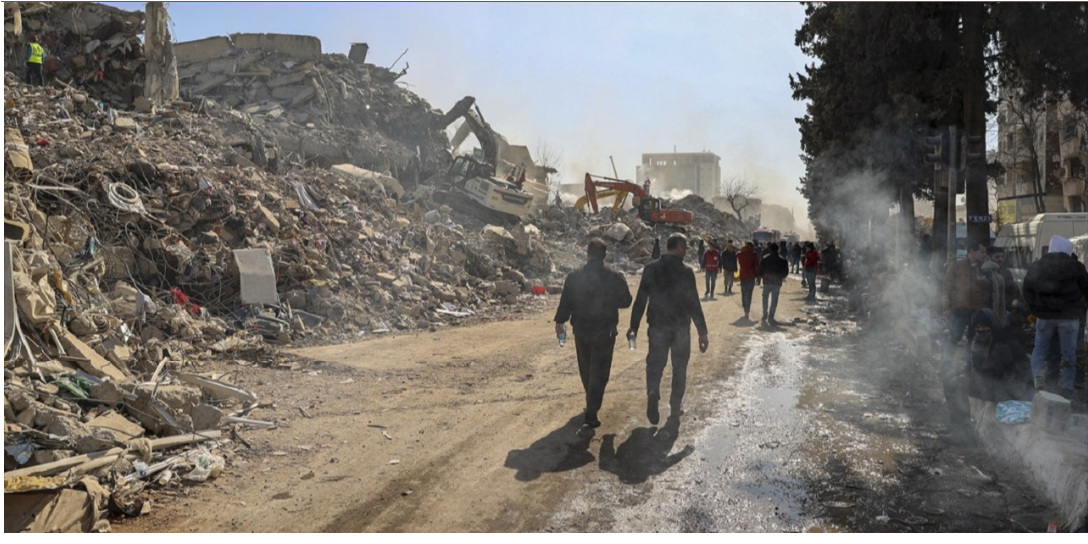We are currently going through a difficult time. It’s possible that the worst possible situation has happened: an earthquake disaster during the coldest time of the year while people were asleep in their homes, all taking place in the midst of an economic crisis. We extend our heartfelt condolences and sympathies to those who have been affected.
The article must begin by acknowledging the fact that our country is susceptible to earthquakes. Nearly half of our country, which comprises almost 30 million people, is vulnerable to destruction. As a result, I would like to raise a question based on the tax consciousness authority, which is an essential aspect of a democratic society. Where are the earthquake taxes that are necessary to prevent such disasters?
After the 1999 Gölcük earthquake, an indirect tax called the “Special Communication Tax” or earthquake tax was introduced. Although it was meant to be used for urban transformation, it became permanent and is similar to stamp duty and fee shares. However, because of certain laws, the collected funds cannot be specifically assigned to certain expenses. Consequently, it is unclear where the funds collected from the earthquake tax are being spent. To address this issue, if the collected funds were accumulated under an “Earthquake Fund” rather than being transferred to the central government budget, it would be possible to determine how the money will be used.
Why SCT (ÖİV) is collecting?
In the past 24 years, nearly 89 billion Turkish liras have been collected from the public through a 10% deduction on various bills, including phone, internet, and cable TV bills. The highest annual tax collection was 9.298 billion liras in the previous year. When asked about the whereabouts of earthquake taxes after the Van disaster, former Minister Mehmet Şimşek claimed they were used for building highways and airports. For years, propaganda was circulated citing Ecevit’s statement, “In ’99, the state was under the debris.” However, just 24 hours after the earthquake, funeral prayers were recited in 10 cities, as if giving up hope for those buried under the rubble. Minister Nebati announced that there were some injuries in Urfa due to the recent earthquake, but most of them were not caused by buildings collapsing but rather by people running away. The Hatay Airport, which was previously flooded, suffered damage to its runway, and a visual was provided for the Hatay-Reyhanlı road.
What should be done?
For 22 years, we have been witnessing a series of inaction and negligence. Muharrem Ince, in anticipation of the “Big Istanbul Earthquake,” suggested creating a vast industrial area with a low earthquake risk in Konya and Karaman, which is a commendable idea. The total amount of collected taxes is equivalent to around 38 billion dollars. With this amount, 764,000 houses could have been constructed, valued at $50,000 per unit. However, constructing new buildings alone cannot address the issue. It is equally critical to protect existing homes. Instead of investing millions in projects like “New Home” and “Social Housing Initiative,” TOKI should have prioritized fortifying existing structures. The government has failed to ensure even the safety of its own edifices, let alone public housing. The Adiyaman Municipal Building and the AFAD Hatay building collapsed last night, demonstrating a pattern of incompetence that refuses to construct its own buildings correctly.
Opposition and Earthquake
Last week, it was encouraging to observe the Joint Policy Consensus Document issued by “Altılı Masa,” which pledged to incorporate earthquake considerations in the field of urban development. The proposed establishment of a Ministry of Urbanization and Disaster Management underscores the need for long-term strategic planning as opposed to short-term gains and personal interests that underlie many development projects. While this plan appears comprehensive, it does not adequately address the issue of earthquake funding. Additionally, there should be more alternatives to ensure the continuity of production following inevitable earthquakes. It is our hope that a change in government would not result in the abandonment of these crucial measures. Failing to do so would render even well-meaning initiatives such as Haluk Levent’s insufficient for addressing the challenges posed by earthquake-prone areas.
During a recent Habertürk broadcast, Celal Şengör shared an anecdote in which he recounted a conversation with a friend who warned him of an impending massive earthquake, to which Şengör replied, “Wait, there’s still Istanbul.” Referring to an anticipated natural disaster as the “Great Istanbul Earthquake” reflects the despair and helplessness of a society that feels powerless against its fate. This sentiment is underscored by the recent rejection by the Istanbul City Council, with support from the AKP and MHP parties, of a proposal to provide at least 4,500 TL in rent assistance for 318 households facing urgent evacuation. While the people of Istanbul are known for their resilience in the face of disasters, the extent of their suffering will ultimately be determined by the government’s policies and actions.
Yağız Kutay Işık
Twitter: @yagizkutayisik
Follow our English language YouTube videos @ REAL TURKEY: https://www.youtube.com/channel/UCKpFJB4GFiNkhmpVZQ_d9Rg
And content at Twitter: @AtillaEng
Facebook: Real Turkey Channel: https://www.facebook.com/realturkeychannel/
